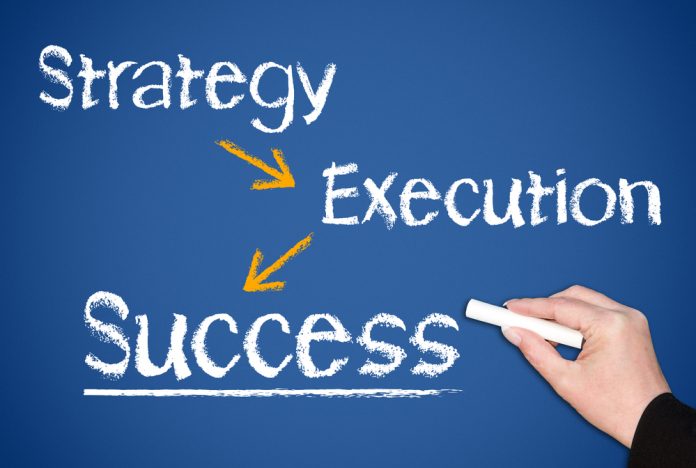
by Adam Rapp
As the pandemic persists, many dealerships have been left with no choice but to run at half capacity. If your dealership falls into this category, you may be finding yourself with some more downtime than usual. While your first inclination may be to take a step back and let the storm run its course, this could negatively impact your business in the future. Instead of throwing in the towel, now is the time to conduct a thorough evaluation of your dealership. If you find that your company is experiencing issues on any level, correct them immediately. Your dealership’s success rate going into the economic rebound will largely depend on the state it was in leading up to the shutdown. With that being said, make the most of this unprecedented opportunity. Take the time to truly assess the inner workings of your dealership and strengthen communication with all of your employees. Moving forward, you will then be able to develop strategies to overcome any adversities that jeopardize your dealership’s success.
During a recent Dealer News Podcast, Dave and Andy interviewed Todd Skelton, the CEO of Prime Auto Group. Largely based in New England, Prime is one of the largest privately-owned auto groups in the country. With 56 stores in eight states, they remain a prime example of what’s good in the auto dealer industry. “The people here are unbelievable. We’ve got some of the most amazing people that I’ve worked with in my 24 years”, says Skelton. In early 2020, Skelton became the CEO of the auto group. While Skelton is a big believer in always innovating and preparing his auto group for the unknown, he never could have predicted the current circumstances. However, Skelton’s work ethic and business tactics are the reason why he has already been able to bring back sixty percent of his furloughed employees.
Skelton believes his success during these difficult times boils down to how he prepared going into the unknown. “We had to make some tough decisions in the beginning so that there would be a business to come back to”, says Skelton. Skelton credits his strong executive team for informing him about the coronavirus early. From this point on, they planned and developed strategies that would ensure the auto group stayed afloat even in the absolute worst outcome.
Overcommuncating is key, especially in times of crisis, according to Skelton. This involves sending out daily video messages that encourage his employees to feel safe and secure in their jobs. While communication is a vital component of survival, Skelton is also of the mind that your company must have strategies for all possible outcomes in a crisis. This is why he devised a thorough plan of procedures regarding potential employee infections. The intent is to have a set of clear guidelines on how to properly handle the situation, covering everything from communication to cleaning. Skelton and his team believe that the first order of business is informing all of the employees in the auto group. While informing the employees you must also notify all customers who have recently visited the dealership. To ensure that the dealership is safe moving forward, Skelton says that your dealership must be thoroughly cleaned. While Skelton’s tactics have certainly helped Prime to stay strong, his efforts to further understand his auto group do not stop here.
To get a grasp on issues at all levels, Skelton visited all 56 of his dealerships. While meeting with employees he made it his mission to bring any underlying difficulties to the surface. This involved Skelton having employees ask him questions that required some genuine thought and proactive adjustments on his part. By utilizing this tactic, Skelton was able to open the door for a genuine conversation with countless employees. With trust established, Skelton was then able to start getting at the root of other challenges faced by the company. Besides a few internal technical problems (which have now been remedied), Skelton found that the auto group was otherwise running smoothly. However, the takeaway here is that this is an ongoing process. Moving forward, Skelton can continue to check in with the people he has met to discuss new issues that were not present during his visit.
The steps Skelton and his team have taken ensure that Prime Auto Group will not only survive but come out stronger in the aftermath of these difficult times. Looking ahead, Skelton has some very insightful ideas regarding how dealerships should navigate the coming months. “We need to have a much cleaner, data driven decision making process”, says Skelton. Skelton says that Prime is focusing on taking data and utilizing it when preparing for the future. Skelton is also of the mind that past figures can indicate the direction of the market. Take Prime Auto Group’s April and May numbers for example. While April saw a sixty percent decrease in both used sales and overall gross profit, May delivered very different numbers. New sales were still down twenty five percent, but used sales increased 50 percent over April. Sales might still be down from where they normally are, but Skelton is still optimistic. “I’m a glass half full guy with a lid”, jokes Skelton. Considering that most of Skelton’s dealerships are still running at half capacity, these numbers are moving in the right direction.
Although as Skelton mentioned, his optimism comes with a lid. Business is returning to some semblance of normalcy for now, but Skelton is skeptical to believe that the auto industry is out of the woods yet. “We’re going to see a lot of volatility in the used car market going forward in terms of pricing”, says Skelton. As the shutdowns limit mobility, dealerships are also struggling to move inventory. According to Skelton, from data collected, it was found that the average age of several dealerships inventory was eighty days and over. Skelton believes this is due in part to a “wait and pray” mentality and a reluctance to sell these vehicles for less as the retail market continues to fluctuate. However, with several factors at play, he contends that now is not the time to lie low and wait out these uncertain times.
According to Skelton, dealerships must be prepared for more plant shutdowns which will inevitably delay the arrival of new inventory. Skelton also says that dealers should not fall into the trap of speculation as it is one of the industry’s greatest shortcomings. This where data becomes the most important factor in determining the direction of your dealership. While the Hertz bankruptcy and the liquidation of its fleet may seem like a tempting bulk purchase, Skelton cautions on such a move. In his mind, Skelton believes that the market is far too fragile at the moment to make any impulsive purchases of large quantities, even if the vehicles are priced lower than usual. Instead, disregard all instincts and trust the data.
In recent developments, data is predicting a SAAR (Seasonally Adjusted Annual Rate) of roughly twelve million projected for next year. The rental car companies make up eight to ten percent of this SAAR (approximately a million and a half units). However, our recent events mean that rental car influence on the SAAR will change dramatically, with many companies likely not to be purchasing any new vehicles next year. Skelton also pointed out Budget and Avis’ decision to build their business model to run at twenty five percent utilization. “There are so many variables in this”, Skelton explains. Skelton predicts that the auto industry will face a shortage in vehicles. In order to navigate this obstacle, Skelton has a plan. “We need to learn how to make a little bit more money per car, in both new and used over the next six to eighteen months”, says Skelton.
Most importantly, Skelton says that dealerships must prepare for change in order to stay on top of their game. Change is necessary in order to make progress. As long as you prioritize communication and utilize data your dealership will always be one step ahead.












